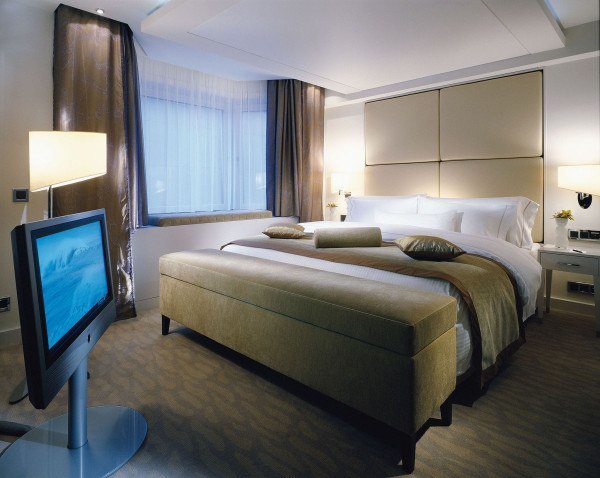I have recently attended a Flight Safety Awareness Course organised by British Airways, which also covered a session on Hotel Safety. To say it was an eye-opening experience (and a great way to spend 4 hours of my life), would be an understatement.
The session focused on air travel, for obvious reasons, but before we wrapped up a great afternoon, the team (who were lovely, by the way) wanted to bring to our attention various aspects concerning hotel safety – which made perfect sense as, if you are a frequent traveller, and fly, it is pretty likely you stay at hotels a lot.
Let’s start with the obvious.. emergency exits. Every hotel has to have on the back of the door, and clearly signed, the escape route in case of an emergency. We all know it – but the point is, what would we do with that information?
I “sometimes” look around the corridor to see where the emergency exit is – I do – but I have never done anything with it. As I now know, in case of fire/smoke, you can’t see a thing, so you won’t be able to see the lit up signs (potentially).
The BA team urged us to do the following:
– Check the map in your room and identify your escape route;
– Do the walk – go to the fire door in your floor and actually open it. A useful tip: count the number of doors between your room and the emergency exit, the same way you should count seat rows on a plane (with your hands, not looking at the numbers).
– Go down the stairs – where does the exit lead to? And more importantly, is it unlocked? Many hotels see this as a security hazard and more often than not, they are locked. (I do have a good friend who works for an oil company and she does this every time she goes into a hotel – she has to as part of her contract).
– Know the local emergency number – sadly they are not the same everywhere. Most EU countries are now moving towards 112, in the USA is 911 (but I still think 999 works in the UK) – in an emergency how will you know?
An other obvious point is knowing where to gather (whether it is a false alarm or not). Very interestingly, in the UK, in most conferences, events, and even meetings, whoever is chairing it always does a bit of “housekeeping” first and this information is always given to visitors and participants. I always thought it was strange (before I moved to the UK properly), and to be honest, I think it is vital information.
Many people will be saying “oh but it never happens” – well, actually I have had some false fire alarms in hotels, and they were great 5-star properties. All it takes is someone to smoke inside the room. How about leaving hair straighteners on and actually causing real fires? It is way more likely for something to happen in a hotel than an airplane!
So, part 2, if there is a fire and you do need to evacuate, what should you take with you?
This was a rhetorical question, and we got some of the answers right.. but not all!
– Shoes – a lot of injuries are caused by people not wearing shoes (burns, broken glass, etc). These should be by your bed and easy to put on. Heels not the best idea.
– Passport and room key – passport can be obvious (but difficult if inside the room safe) but the room key threw me. Why? Well, imagine if it is really smoky etc and staying in the room is the only real option.. how do you get back in? Duh!
– Phone – to be used as a flashlight and obviously to any necessary calls if needed/possible.
– A wet towel – something that would never cross my mind (or if impossible, a scarf). This made a lot of sense – to protect you from the smoke, and to help you breathe.
Ideally, you’d leave your shoes by your bed, with your room key and passport inside them and have your phone handy. Would I always do it? I am thinking not, but why not? It is quite simple…
To finish it off, we were asked a simple question: which floor do you prefer to stay at? Obviously I said, as high as possible, “for the views”. Wrong answer – fire ladders only get to the 4th floor (in the USA that would be the 5th floor because they are counted differently – not because ladders are larger, which could also be a possibility). That actually made me think a bit.
Obviously the point of this post is not to be alarming, in the slightest – but just to share the information I learned (which I must confess I never thought about before).
What happened to me since the course? I have started counting rows on airplanes (and have noticed other people doing so too) and I will surely start counting doors. It will take 2 minutes and could make a huge difference.
Stay safe!
xo
Mrs. O
Disclaimer: I was a guest of British Airways on this course. Views and opinions are, as always my own. To find out more about this course, which costs £162 per person, visit BA’s website.

